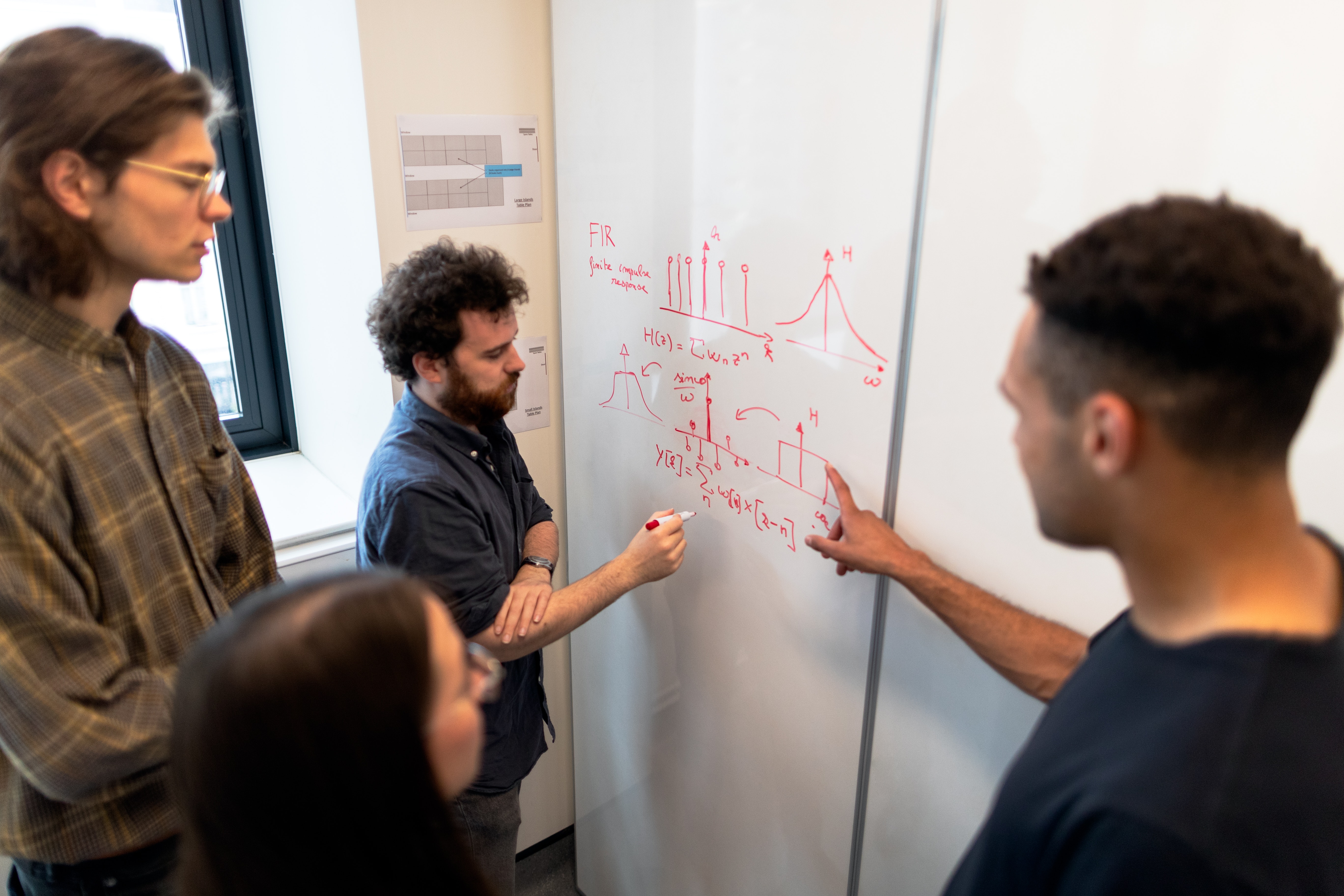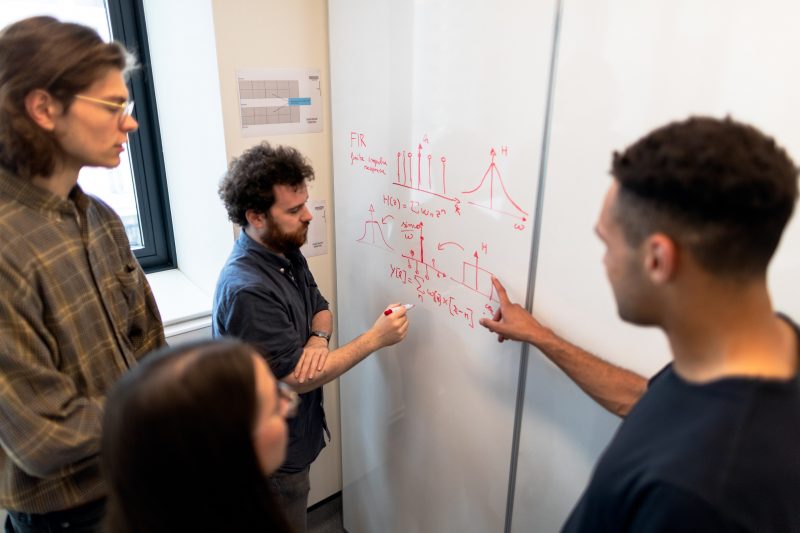What Are the Top Data Engineer Interview Questions?
To help you identify the most crucial interview question for data engineer candidates, we’ve gathered insights from 11 industry professionals, including CEOs, CMOs, and Community Managers. From assessing non-technical skills to evaluating performance under tight deadlines, discover the top questions these experts would ask and why.
- Which Non-technical Skill is Most Useful as a Data Engineer?
- Can You Describe Your Problem-solving Approach to a Challenge?
- How Would You Build a New Data Pipeline?
- How Do You Approach Data Preparation?
- What’s the Best Database?
- How Do You Use Automation to Improve Data Processing?
- Describe Your Experience with Scalable Data Architecture
- How Do You Ensure Data Validity and Accuracy?
- What’s the Difference Between Structured and Unstructured Data?
- Can You Describe Your Most Recent Project?
- When Did You Last Experience a Tight Deadline?
Which Non-technical Skill is Most Useful as a Data Engineer?
If I could only ask a data engineer candidate one interview question, it’d be “Which of your non-technical skills do you find most useful as a data engineer?”
Though technical knowledge is essential, you can assess it by reviewing the candidate’s resume and assigning a skills test. Non-technical skills can’t be easily tested—and they’re essential to data engineering.
There are many ways a candidate could answer a question about their non-technical skills, but I’d be looking for signs they were client-focused, organized, and strong communicators. Remember, most IT clients don’t know what they need.
What makes a good data engineer is the ability to identify a client’s needs, find solutions within the data, and convey them using language the client can understand.
A standout interviewee would show (not tell) me their non-technical skills by giving specific examples—and illustrate how these skills have enabled them to improve processes and client satisfaction in the past.
Geoffrey Scott, SEO Content Manager and Certified Professional Resume Writer (CPRW), Resume Genius
Can You Describe Your Problem-solving Approach to a Challenge?
“What was a challenging data engineering project you worked on, and how did you approach and solve it?”
This question allows the candidate to show their technical skills, problem-solving abilities, communication skills, and adaptability in data engineering. Their response provides insights into the complexity of the project, the tools and methodologies they used, and their ability to overcome challenges effectively.
John Salt, Founder and CEO, OnlyDataJobs.com
How Would You Build a New Data Pipeline?
You’ll want to ask a question that will help you assess their technical proficiency, problem-solving abilities, and communication skills. One question that can do all of this is, “Can you walk me through how you would build a data pipeline from scratch?”
A data pipeline is the backbone of any data-driven organization, and building one requires a deep understanding of the underlying data architecture, infrastructure, and business requirements.
By asking this question, you can get a sense of the candidate’s experience with data engineering tools, such as ETL frameworks, databases, and cloud computing services. You can also evaluate their ability to design scalable and reliable data processing workflows, as well as their knowledge of data security and compliance.
Moreover, this question can help you assess the candidate’s problem-solving skills. The ability to break down complex problems into smaller, manageable tasks is a crucial aspect of data engineering.
Luciano Colos, Founder and CEO, Pitchgrade.com
How Do You Approach Data Preparation?
If I could ask only one interview question to a data engineer, it would be: “How do you approach data preparation?”
This helps me understand how candidates approach the important task of preparing data on the job. Their response provides valuable insights into their methods, tools, and techniques for transforming raw data into usable formats. It demonstrates their deep understanding of assessing, cleaning, and integrating data quality.
Additionally, it showcases their proficiency in using relevant technologies and streamlining the data preparation process effectively. Understanding a data engineer’s approach to data preparation is vital for evaluating their competence and suitability for the role.
Jeffrey Pitrak, Marketing/Account Manager, Transient Specialists
What’s the Best Database?
A smart candidate will provide answers depending on the problem context. It’s understandable to have a favorite option, but the best candidates recognize that “it depends” is the right approach. How they determine which database to use is the interesting part of the conversation.
Trevor Ewen, COO, QBench
How Do You Use Automation to Improve Data Processing?
As a data engineer, automating data processing is a key skill. Asking how a candidate has utilized automation to improve data processing can provide insight into their technical abilities and problem-solving skills.
Additionally, it can help determine if the candidate is familiar with common tools and technologies used in the field, such as ETL tools, scripting languages, and workflow automation platforms.
Ben Lau, Founder, Featured SEO Company
Describe Your Experience with Scalable Data Architecture
If I could only ask one interview question to a data engineer candidate, it would be: “Describe your experience in designing and implementing scalable data architectures.” This question is crucial as it assesses the candidate’s understanding of data architecture principles, their ability to design efficient and scalable solutions, and their experience in handling large volumes of data.
A data engineer’s role revolves around building robust data architectures, so this question provides valuable insights into their expertise and suitability for the position.
Roy Lau, Co-founder, 28 Mortgage
How Do You Ensure Data Validity and Accuracy?
Data accuracy is essential when performing data analysis. If your data is inaccurate or invalid, your results won’t be reliable. The interviewee should show their knowledge of the steps they take to validate data before using it.
From validating input and output formats to ensuring data sets have no duplicates and ensuring data is within the expected range. Proactive candidates will explain how they’ve developed custom scripts to automate some steps, such as cleaning, sorting data, or checking for outliers.
Karl Robinson, CEO, Logicata
What’s the Difference Between Structured and Unstructured Data?
“Can you explain the difference between structured data and unstructured data?” is a must-ask question for any data engineer candidate.
This basic competency question ensures the candidate knows what they are talking about and gives them an opportunity to demonstrate their expertise. Ideally, they will first explain the difference between structured and unstructured data, then provide an example of how unstructured data transforms into structured data.
Any example directly from a previous project they undertook is an even better answer.
Max Schwartzapfel, CMO, Schwartzapfel Lawyers
Can You Describe Your Most Recent Project?
If I could only ask one interview question to a data engineer candidate, I would ask them to describe their experience with a recent project that they worked on. This question would allow me to assess their technical skills, their ability to work on a team, and their problem-solving skills.
I would also look for the candidate to articulate their role in the project and their contributions. I would want to know how they worked with others, how they handled challenges, and how they measured the success of the project.
Brenton Thomas, CEO, Twibi
When Did You Last Experience a Tight Deadline?
Ask about a time when the candidate faced a tight deadline for a data engineering project. The answer can provide valuable insights into several aspects of their skills and suitability for the role. It will help you assess the candidate’s performance under pressure, problem-solving abilities, adaptability, and collaboration skills—all of which are essential qualities for a data engineer who needs to deliver high-quality data solutions in a time-sensitive environment.
Data engineering projects can be complex and unpredictable. Still, they often have strict timelines and deadlines. The candidate’s experience with working in tense situations can reveal their ability to manage their time effectively, prioritize tasks, and deal with stress and pressure.
It may also shed light on how they approach challenges and identify critical issues. Does the candidate find it easy to come up with creative solutions? Are they flexible enough to rethink their ways of working? And the list of valuable insights goes on.
Agata Szczepanek, Community Manager, MyPerfectResume






